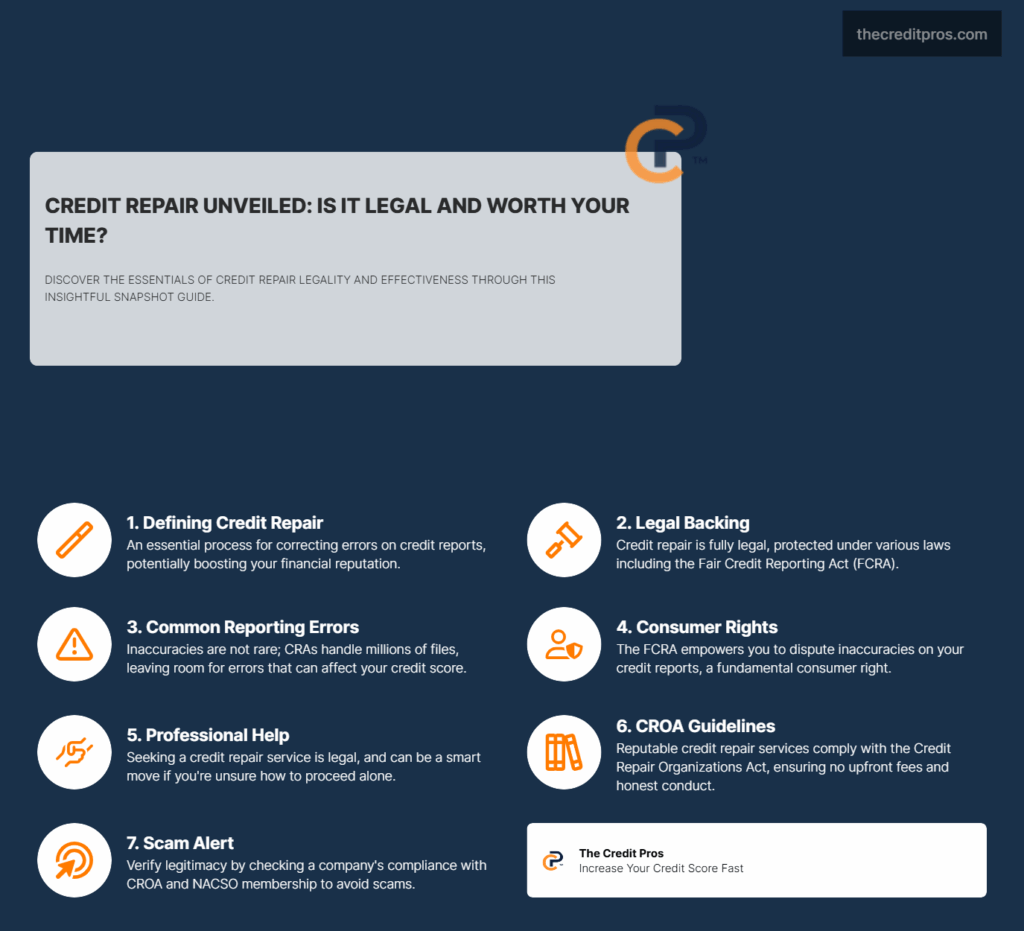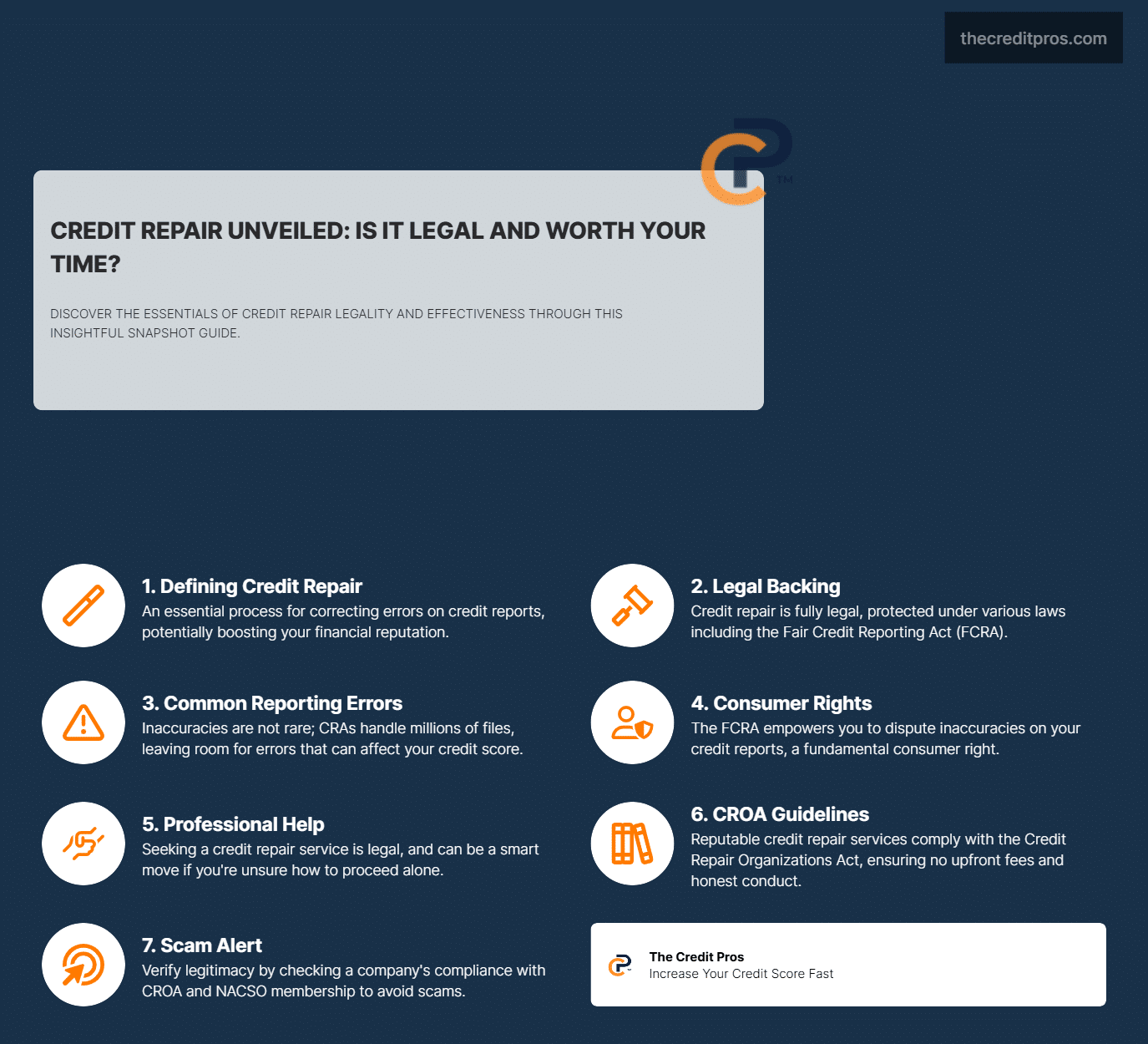Credit bureaus play a critical role in your financial life, yet many people don’t fully understand how these institutions influence their ability to secure loans, the interest rates they pay, or even their housing options. Equifax, Experian, and TransUnion—the three major credit bureaus—collect, analyze, and distribute information about your credit activity, creating reports that lenders use to make decisions about your creditworthiness. Understanding the role of credit bureaus is essential to grasping what exactly goes into these reports, and why they sometimes contain different information. How can you use this knowledge to improve your financial standing? The role of credit bureaus cannot be understated as they are vital to your financial future.
Understanding credit bureaus and the role of credit bureaus isn’t just important for those facing financial challenges—it’s essential for anyone who uses credit. Whether you’re applying for a mortgage, financing a car, or opening a new credit card, the information these bureaus maintain directly impacts the terms you’ll receive. By learning how credit bureaus operate, the rights you have regarding your credit information, and strategies for managing your credit profile effectively, you can take greater control of your financial future and potentially save thousands of dollars over your lifetime.

Understanding credit bureaus and the role of credit bureaus is crucial for managing your credit. The role of credit bureaus extends beyond mere data collection; they shape your financial identity and opportunities.
The Core Functions of Credit Bureaus in the Financial Ecosystem
The role of credit bureaus is pivotal in ensuring that the credit market functions effectively. By understanding the role of credit bureaus, consumers can better navigate their financial choices.
Credit bureaus, by performing their essential role of credit bureaus, help both lenders and consumers make informed decisions based on accurate credit information.
Understanding the role of credit bureaus in your financial life can lead to better credit management strategies.
The role of credit bureaus in reporting your credit activity can significantly affect your financial options in the long run.
How lenders perceive the role of credit bureaus can influence their decision-making and the interest rates offered.
Understanding the role of credit bureaus is critical when you apply for credit, as they provide vital information to lenders about your creditworthiness.
The role of credit bureaus can make a substantial difference in the interest rates and financial terms you receive.
Utilizing the role of credit bureaus effectively can lead to more favorable loan options.
The role of credit bureaus is also about empowering consumers through understanding their rights and protections.
The FCRA reinforces the role of credit bureaus in maintaining accurate credit information.
Recognizing the role of credit bureaus can help you take control of your financial health.
The dispute resolution process is one way consumers can engage with the role of credit bureaus to ensure accuracy in their reports.
Understanding consumer protections enhances the role of credit bureaus in safeguarding your credit profile.
The role of credit bureaus is pivotal in ensuring that the credit market functions effectively and transparently, providing necessary data to creditors and consumers alike.
Credit bureaus operate as sophisticated data repositories that collect, analyze, and distribute information about consumers’ credit activities. These institutions maintain detailed records of your borrowing activities, payment patterns, and financial obligations. The data collection process is comprehensive and ongoing, with bureaus receiving regular updates from creditors, public records, and collection agencies. Banks, credit card companies, mortgage lenders, and auto financing firms routinely report account information to these bureaus, typically on a monthly basis.
When examining the types of information maintained in credit reports, five key categories emerge. Payment history, which accounts for approximately 35% of your credit score, tracks whether you’ve made payments on time or have delinquencies. Credit utilization measures the percentage of available credit you’re using, with lower utilization rates generally viewed more favorably. Account types and credit mix demonstrate your ability to manage different forms of credit, from revolving accounts like credit cards to installment loans such as mortgages. Length of credit history provides insight into how long you’ve been using credit, with longer histories typically considered less risky. Public records and collections include information about bankruptcies, tax liens, judgments, and accounts sent to collection agencies.
Different types of information remain on your credit report for varying lengths of time. Positive information, such as on-time payments and accounts in good standing, can stay indefinitely while the accounts remain open. Late payments, collections, and charge-offs generally remain for seven years from the date of the first delinquency. Chapter 13 bankruptcies stay on your report for seven years, while Chapter 7 bankruptcies remain for ten years. Credit inquiries, which occur when lenders check your credit, typically stay on your report for two years but only impact your score for one year. This timeline structure ensures that recent financial behavior carries more weight than past actions, allowing consumers to rebuild their credit over time.
How Lenders Utilize Credit Bureau Information for Financial Decisions
When you apply for credit, lenders engage in a methodical evaluation process that heavily relies on credit bureau data. This assessment typically begins with pulling your credit report from one or more of the major bureaus. Lenders then analyze your credit score, payment history, debt levels, and length of credit history to determine your creditworthiness. Many financial institutions employ automated underwriting systems that process this information according to predetermined criteria, generating an initial approval or denial recommendation. For larger loans like mortgages, this automated process is often followed by manual review by underwriters who examine the nuances of your financial situation.
The impact of your credit report on interest rates cannot be overstated. Lenders use risk-based pricing models that directly correlate interest rates with credit profiles – the higher your credit score, the lower your interest rate. This differential pricing can result in significant financial consequences over time. For instance, on a $300,000 30-year mortgage, a borrower with excellent credit might secure a rate of 3.5%, while someone with fair credit might pay 5.5%. This 2% difference translates to over $125,000 in additional interest over the life of the loan. This stark contrast demonstrates why maintaining a positive credit bureau profile is essential for long-term financial health.
Different lending products place varying emphasis on specific aspects of your credit bureau information. Mortgage lenders typically conduct the most thorough credit analysis, examining your complete financial picture including debt-to-income ratios and payment stability. Auto lenders often develop specialized scoring models that heavily weight previous auto loan performance. Credit card issuers focus intensely on payment history and utilization rates, as these metrics have proven highly predictive of future revolving credit behavior. Understanding these nuances can help you prepare strategically when applying for different types of credit, focusing your improvement efforts on the aspects most relevant to your immediate financial goals.
Consumer Rights and Protections Regarding Credit Bureaus
The Fair Credit Reporting Act (FCRA) serves as the cornerstone of consumer protection in relation to credit bureaus. Enacted in 1970 and significantly amended several times since, this federal law establishes your fundamental rights regarding the collection, dissemination, and use of your credit information. The FCRA mandates that credit bureaus maintain accurate records and implement reasonable procedures to ensure the integrity of the information they report. It also limits who can access your credit report, requiring a permissible purpose such as credit applications, insurance underwriting, or employment considerations (with your consent).
One of the most valuable provisions of the FCRA is the right to access your credit reports free of charge once every 12 months from each of the three major bureaus through AnnualCreditReport.com. This right was expanded during the COVID-19 pandemic, with free weekly access currently available through the end of 2023. Beyond these free reports, you’re entitled to additional free reports in specific circumstances, including when you’ve been denied credit based on information in your report, when you’re unemployed and planning to seek employment within 60 days, when you receive public assistance, or when you have reason to believe you’re a victim of identity theft.
The dispute resolution process represents another critical consumer protection mechanism. When you identify inaccurate or incomplete information on your credit report, you have the right to challenge it directly with the credit bureau. Upon receiving your dispute, the bureau must investigate the claim, typically within 30 days, by contacting the information provider (such as a creditor or collection agency). If the investigation confirms the information is inaccurate, the bureau must correct or delete it. If the investigation does not resolve the dispute to your satisfaction, you have the right to add a brief statement to your report explaining your position. This statement will be included with future credit reports.

Strategies for managing your credit bureau profile revolve around the understanding of the role of credit bureaus in your financial life.
Being proactive about the role of credit bureaus can significantly improve your credit score.
Actively engaging with your credit reports highlights the role of credit bureaus in shaping your financial opportunities.
Beyond these core protections, the FCRA provides several specialized tools to help safeguard your credit:
- Security freezes: You can restrict access to your credit report, preventing new credit accounts from being opened in your name without your explicit permission.
- Fraud alerts: These notifications on your credit report require businesses to verify your identity before issuing credit in your name, with three types available:
- Initial fraud alerts (1 year)
- Extended fraud alerts (7 years, for confirmed identity theft victims)
- Active duty alerts (1 year, for military personnel)
- Credit locks: Similar to freezes but often offered as premium services by credit bureaus, allowing more convenient locking and unlocking.
- Opt-out options: You can remove your name from prescreened credit offer lists by visiting OptOutPrescreen.com.
The role of credit bureaus is to provide essential information for maintaining a strong credit profile.
Ultimately, understanding the role of credit bureaus will empower you to take control of your financial future.
Being aware of the role of credit bureaus in your financial journey can help you navigate through the complexities of credit management.
Navigating the Differences Between Credit Bureaus
Despite their similar functions, Equifax, Experian, and TransUnion maintain distinct data collection methodologies and relationships with creditors. Not all lenders report to all three bureaus, creating natural variations in the information each bureau maintains about you. Regional and smaller lenders, in particular, might report to only one or two bureaus to manage reporting costs. Additionally, each bureau may receive information at different times, resulting in temporary discrepancies between reports. These structural differences explain why your credit reports and scores often vary across bureaus, sometimes substantially.
The information format and presentation also differs between bureaus. Equifax organizes credit accounts by date opened, while Experian arranges them alphabetically by creditor name, and TransUnion categorizes them by account type. Equifax uses a proprietary scoring model called Equifax Credit Score with a range of 280-850. Experian provides the FICO 8 score (300-850) and its own Experian PLUS Score (330-830). TransUnion offers both FICO scores and its proprietary VantageScore (300-850). These variations in scoring models can result in different numeric scores even when the underlying credit data is identical.
Industry-specific relationships further complicate the landscape. Certain sectors have historically stronger relationships with particular bureaus. Mortgage lenders typically pull a tri-merge report containing information from all three bureaus, but may give preference to one bureau’s data when discrepancies arise. Auto lenders often favor Experian reports, while credit card issuers frequently utilize TransUnion data for initial screening. Utility companies and landlords commonly report to Experian’s RentBureau service. Understanding these industry preferences can help you anticipate which bureau’s information might be most relevant for specific financial applications and focus your monitoring efforts accordingly.
Strategies for Effectively Managing Your Credit Bureau Profile
Establishing a positive credit bureau profile requires intentional management of your credit accounts and behaviors. Begin by ensuring that your credit-positive activities are being properly reported. Some creditors, particularly smaller institutions, may not report to all bureaus or may report inconsistently. If you’re working to build credit, confirm that your accounts report to at least one major bureau, ideally all three. For secured credit cards or credit builder loans specifically obtained to establish credit, this verification is particularly important. Additionally, consider services like Experian Boost, which allows you to add utility and subscription payments to your Experian credit report, potentially improving your score by demonstrating responsible payment behavior that traditionally goes unreported.
Monitoring your credit reports regularly serves as the foundation of effective credit bureau profile management. While annual free reports provide a baseline, more frequent monitoring helps you catch errors, fraudulent activity, or negative changes promptly. Many financial institutions now offer free credit score access and monitoring services to their customers. Credit card issuers like Chase, American Express, and Discover provide regular FICO score updates, while banks such as Capital One offer TransUnion VantageScore monitoring through their CreditWise service. For more comprehensive coverage, consider a dedicated credit monitoring service that tracks all three bureaus, particularly before major financial decisions like applying for a mortgage or auto loan.
The timing and sequencing of credit applications significantly impacts your credit bureau profile. Each hard inquiry typically causes a small, temporary drop in your credit score (usually less than five points), but multiple inquiries in a short period can have a cumulative negative effect. However, credit scoring models incorporate “rate shopping” provisions for certain loan types. Multiple inquiries for auto loans, mortgages, or student loans within a 14-45 day window (depending on the scoring model) are typically treated as a single inquiry. To maximize these provisions, concentrate your rate shopping within a two-week period when possible. For credit cards, which don’t benefit from these provisions, space applications several months apart to minimize the impact on your scores. This strategic timing helps maintain a healthy credit profile while still allowing you to seek the most favorable terms for your financial needs.
Managing your credit bureau profile also means understanding the nuanced impact of account closures and credit limit changes. While closing unused credit accounts might seem prudent, it can actually harm your credit score by reducing your overall available credit and potentially shortening your credit history. Before closing accounts, consider how it will affect your utilization ratio and average account age. Similarly, requesting credit limit increases on existing accounts can improve your utilization ratio without adding new accounts or inquiries, provided you don’t subsequently increase your spending. These seemingly minor decisions can have significant long-term effects on how credit bureaus perceive your financial behavior.
Conclusion: Taking Control of Your Financial Future
Credit bureaus wield significant influence over your financial opportunities, affecting everything from loan approvals to interest rates and housing options. Understanding how Equifax, Experian, and TransUnion collect and report your information empowers you to manage your credit profile strategically. By regularly monitoring your reports, timing credit applications wisely, and leveraging consumer protections under the FCRA, you’re equipped to maintain accurate records and build a strong credit history that opens doors to better financial terms.

Your relationship with credit bureaus isn’t passive—it’s a dynamic interaction that rewards informed engagement. The differences between bureaus that once seemed confusing can become opportunities for targeted improvement when you understand their unique methodologies and industry relationships. The knowledge you’ve gained doesn’t just help you navigate financial challenges; it provides a framework for proactive credit management that could save you thousands of dollars throughout your lifetime. What financial doors might open when you transform from being merely the subject of credit reporting to becoming the architect of your credit story?


